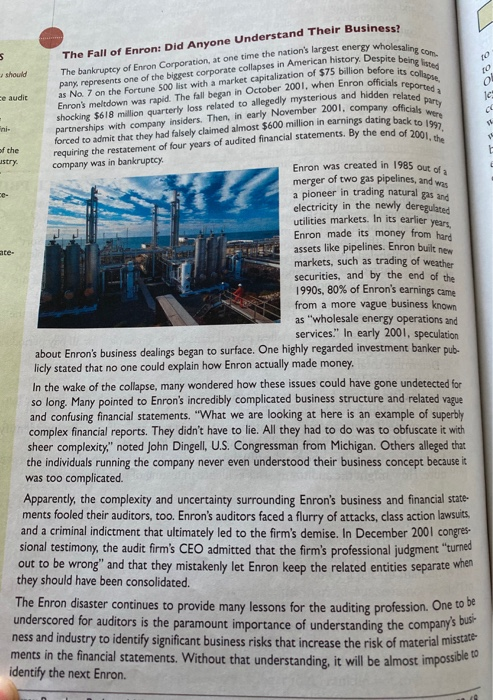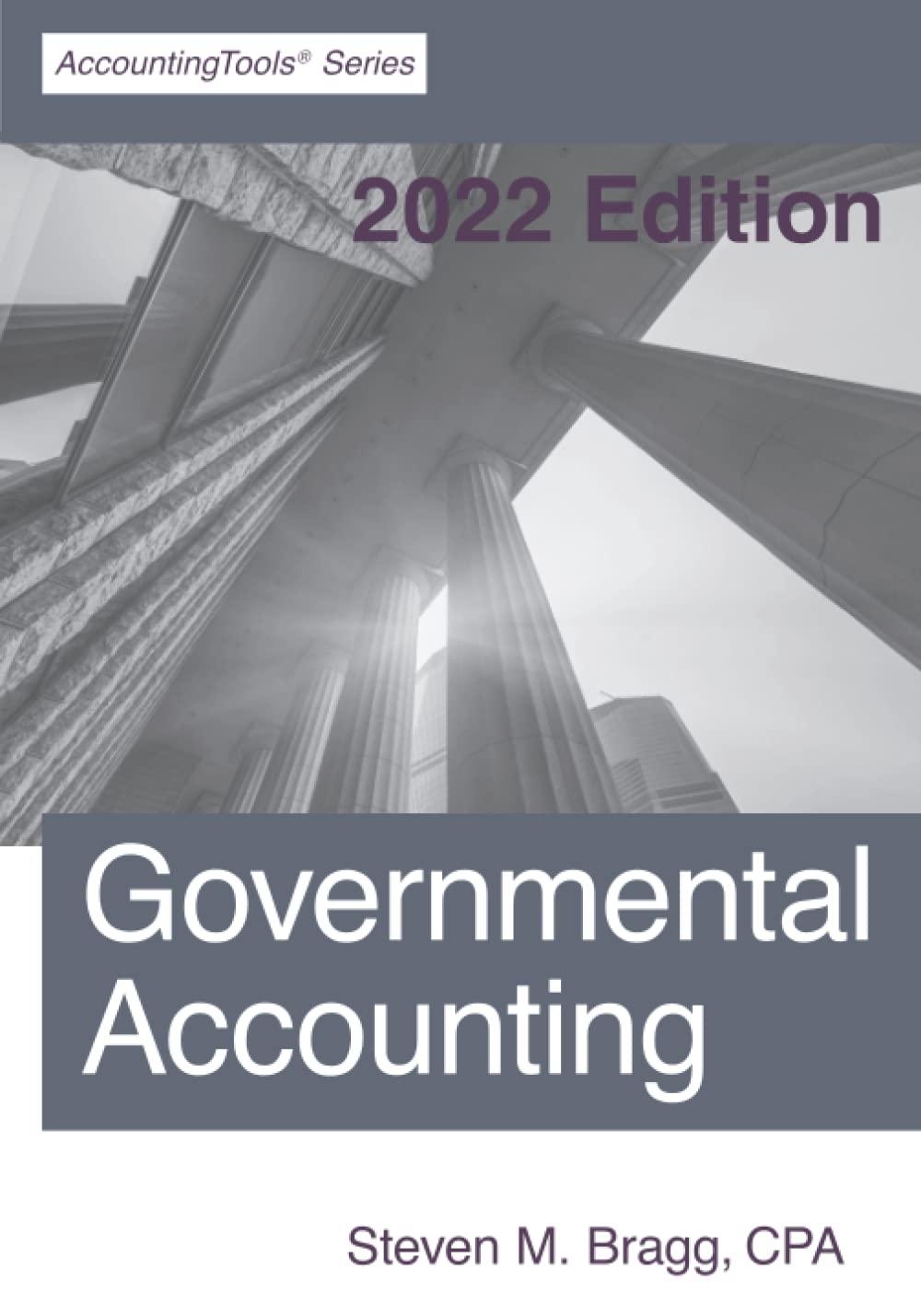Chapter 8 Vignette Question Based on the information in vignette, what the reasons lead to audit failure? should holesaling.com spite being listed fore its collapse officials reported a related party w officials were one 500 the fall bered to be Nover The Fall of Enron: Did Anyone Understand Their Business? The bankruptcy of Enron Corporation, at one time the nation's largest energy wholesal pany represents one of the biggest corporate collapses in American history. Despite as No. 7 on the Fortune 500 list with a market capitalization of $75 billion before it Enron's meltdown was rapid. The fall began in October 2001, when Enron officials shocking $618 million quarterly loss related to allegedly mysterious and hidden rol partnerships with company insiders. Then, in early November 2001, company offer forced to admit that they had falsely claimed almost $600 million in earnings dating bank requiring the restatement of four years of audited financial statements. By the end of company was in bankruptcy. ce audic es dating back to 1997, ini- nd of 2001, the of the ustry Enron was created in 1985 out of merger of two gas pipelines, and was a pioneer in trading natural gas and electricity in the newly deregulated utilities markets. In its earlier years Enron made its money from hard assets like pipelines. Enron built new markets, such as trading of weather securities, and by the end of the 1990s, 80% of Enron's earnings came from a more vague business known as "wholesale energy operations and services." In early 2001, speculation about Enron's business dealings began to surface. One highly regarded investment banker pub. licly stated that no one could explain how Enron actually made money. In the wake of the collapse, many wondered how these issues could have gone undetected for so long. Many pointed to Enron's incredibly complicated business structure and related vague and confusing financial statements. "What we are looking at here is an example of superbly complex financial reports. They didn't have to lie. All they had to do was to obfuscate it with sheer complexity," noted John Dingell, U.S. Congressman from Michigan. Others alleged that the individuals running the company never even understood their business concept because it was too complicated. Apparently, the complexity and uncertainty surrounding Enron's business and financial state- ments fooled their auditors, too. Enron's auditors faced a flurry of attacks, class action lawsuits and a criminal indictment that ultimately led to the firm's demise. In December 2001 congres sional testimony, the audit firm's CEO admitted that the firm's professional judgment turce out to be wrong" and that they mistakenly let Enron keep the related entities separate they should have been consolidated. The Enron disaster continues to provide many lessons for the auditing profession. One underscored for auditors is the paramount importance of understanding the companys ness and industry to identify significant business risks that increase the risk of material min ments in the financial statements. Without that understanding, it will be almost imposs identify the next Enron








